Complete Solutions to ADVANCE MCQS of chapter CAPACITANCE of Class 12 book with complete answers and questions
| Class 12 | PHYSICS |
| Chapter | CAPACITANCE |
| PHYSICS GALAXY | ADVANCE MCQS |
| Number Of Questions | 26 |
| Academic Year | 2023-24 |
While a capacitor remains connected to a battery and dielectric slab is applied between the plates, then
View SolutionThe figure shows a capacitor having three dielectric layers parallel to its plates. Layer `x` is vacuum, `y` is conductor and `z` is a dielectric. Which of the following change(s) will result in increase in capacitance ?
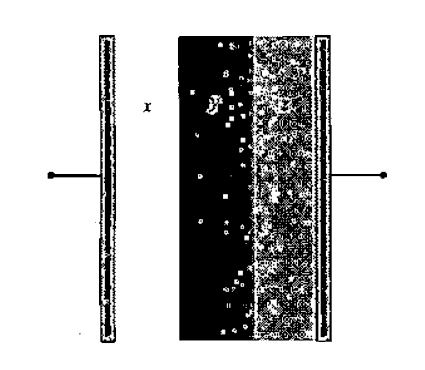
View SolutionHow does the total energy stored in the capacitors in the circuit shown in the figure change when first switch `K_(1)` is closed (process-1) and then switch `K_(2)` is also closed (process-2), Assume that all capacitor were initially uncharged?
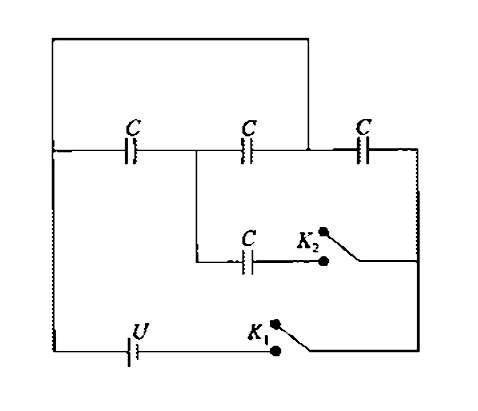
View SolutionA parallel plate capacitor is charged and the charging battery is then disconnected. If the plates of the capacitor are moved farther apart by means of insulating handles:
View SolutionThe plates of a parallel-plate capacitor are separated by a solid dielectric. This capacitor and a resistor are connected in series across the terminals ofa battery. Now the plates of the capacitor are pulled slightly further apart. After some time circuit again attains steady state.
View SolutionFor the given circuit shown in figure which of the following statements is/are correct
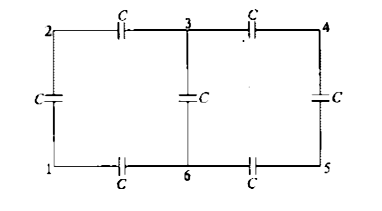
View SolutionCapacitor `C_(1)` of the capacitance `1muF` and another capacitor `C_(2)` of capacitance `2muF` are separately charged fully by a common battery.The two capacitors are then separately allowed to discharge through equal resistors at time `t=0`.
View SolutionA capacitor of capacity `C_(0)` is conneted to a battery of emf`V_(0)` When steady state is attained a dielectric slab of dielectric constant K is slowly introduced in the capacitor to fill the capacitor completely. Mark the correct statement(s), in final stady state.
View SolutionA dielectric slab fills the space between the square plates of a parallel-plate capacitor. The side of each plate of the capacitor is `L`. The magnitude of the bound charges on the slab is `75%` of the magnitude of the free charge on the plates. The capacitance is `480muF` and the maximum charge that can be stored on the capacitor is `240epsilon_(0)L^(2)E_("max"),` where `E_("max")` is the breakdown strength of the medium:
View SolutionIn a spherical capacitor,-we have two concentric spherical shells, the inner one carrying a charge `Q` and outer one carrying a charge of `-Q`. If the inner shell is displaced from the center without touching the outer shell :
View SolutionA parallel plate air capacitor is connected to a battery. The quantities charge, voltage, electric field and energy associated with this capacitor are given by `Q_0` , `V_0`, `E_0` and `U_0` respectively. A dielectric slab is now introduced to fill the space between the plates with battery still in connection. The corresponding quantities now given by Q, V, E and U are related to the previous one as
View SolutionA capacitor with no dielectric is connected to a battery at t=0.Consider a point A in the connecting wires and a point B in between the plates.
View SolutionEach plate of a parallel plate capacitor has a charge `q` on it. The capacitor is now connected to a battery. Now
View SolutionFigure shows three circuits, each consisting of a switch and two capacitors, initially charged as indicated in the figure. In which circuit the charge on the left hand capacitor will change after the closing of the switch :

View SolutionA dielectric slab of thickness `d` is inserted in a parallel plate capacitor whose negative plate is at `x = 0` and positive plate is at `x = 3d`. The slab is equidistant from the plates. The capacitor is given some charge. As one goes from 0 to `3d`:
View SolutionIn the circuit shown, the potential difference across the `3muF` capacitor is `V` and the equivalent capacitance between `A` and `B` is `C` Then:
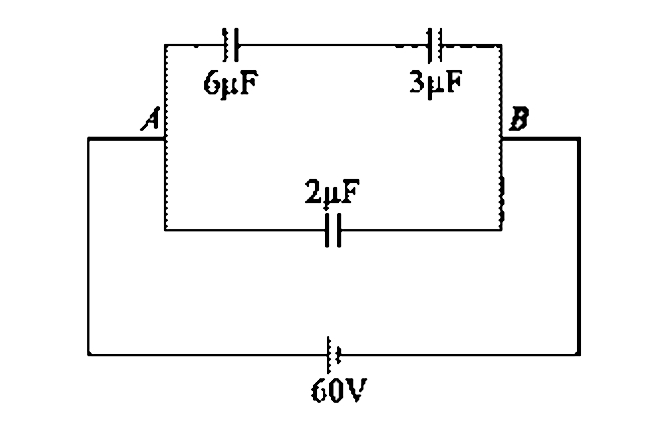
View SolutionTwo identical parallel plate capacitors of same dimensions joined in series are connected to a constant voltage source. When one of the plates of one capacitor are brought closer to the other plate :
View SolutionA parallel plate capacitor is first connected to a constant voltage source. It is then disconnected and ·then immersed in a liqnid dielectric, then:
View SolutionIn a parallel-plate capacitor, the region between the plates is filled by a dielectric slab. The capacitor is connected to a cell and the slab is taken out. Then
View SolutionIn a parallel plate capacitor, the region between the plates is filled by a dielectric slab. The capacitor is charged from a cell and then disconnected from it. The slab is now taken out :
View SolutionA parallel plate capacitor is connected across a source of covstant potential difference. If a dielectric slab is introduced between the two plates, then
View SolutionIdentical dielectric slabs are inserted into two identical capacitors `A` and `B`. These capacitors and a battery are connected as shown in figure. Now the slab of capacitor `B` is pulled out with battery remaining connected
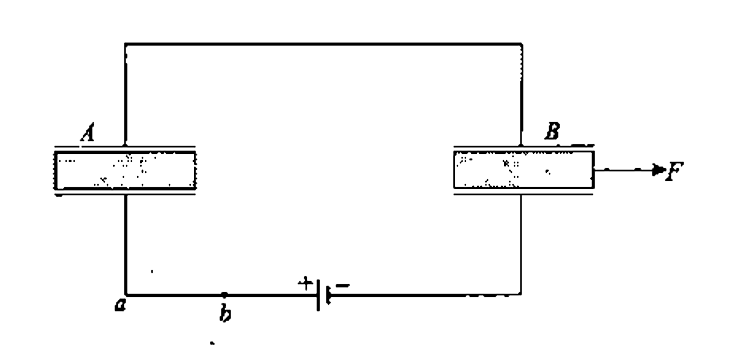
View SolutionA parallel plate air capacitor is connected to a battery. If plates of the capacitor are pulled farther apart, then which of the following statements is/are correct ?
View SolutionWhen two identical capacitors are charged individually to different potentials & then connected in parallel, after disconnecting from the source then
View SolutionThe plates of a parallel plate capacitor are, not exactly parallel. The surface charge density therefore :
View SolutionTwo capacitors of `2muF` and `3muF` are charged to `150 V` and `120 V`, respectively. The plates of capacitor are connected as shown in the figure. An uncharged capacitor of capacity `1.5muF` falls to the free end of the wire. Then
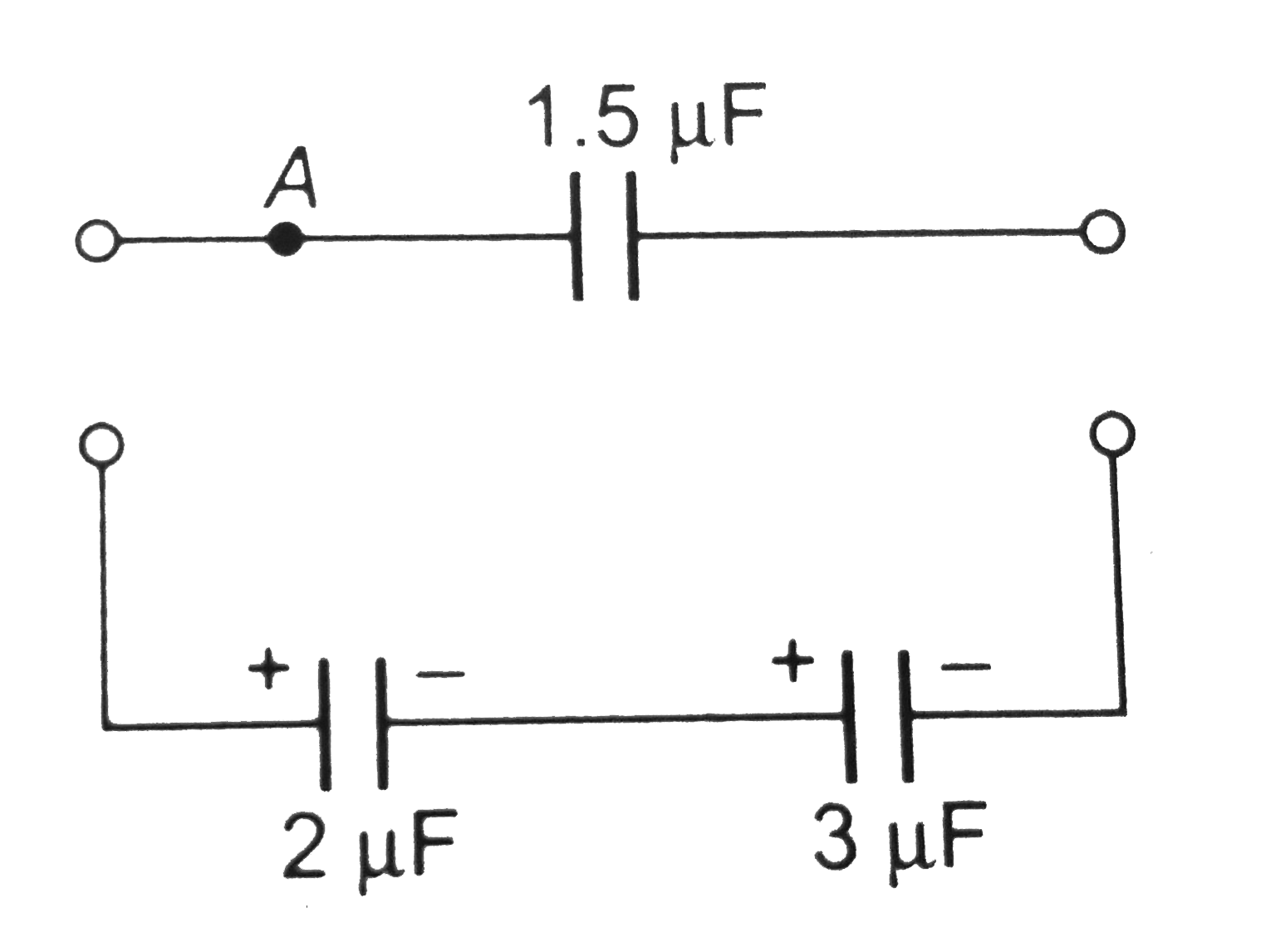
View Solution
ADVANCE MCQS questions and complete solutions for chapter CAPACITANCE of GK PUBLICATIONS PHYSICS (HINGLISH) of Class 12